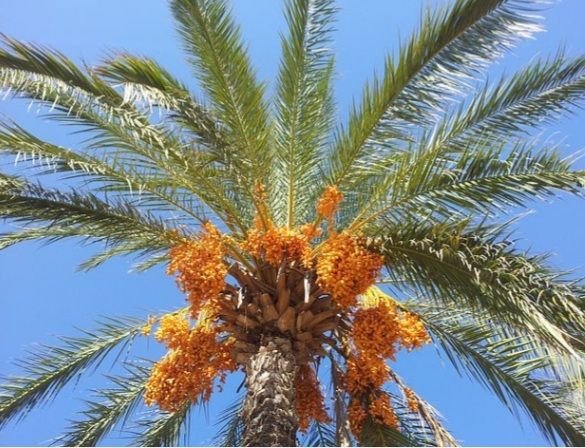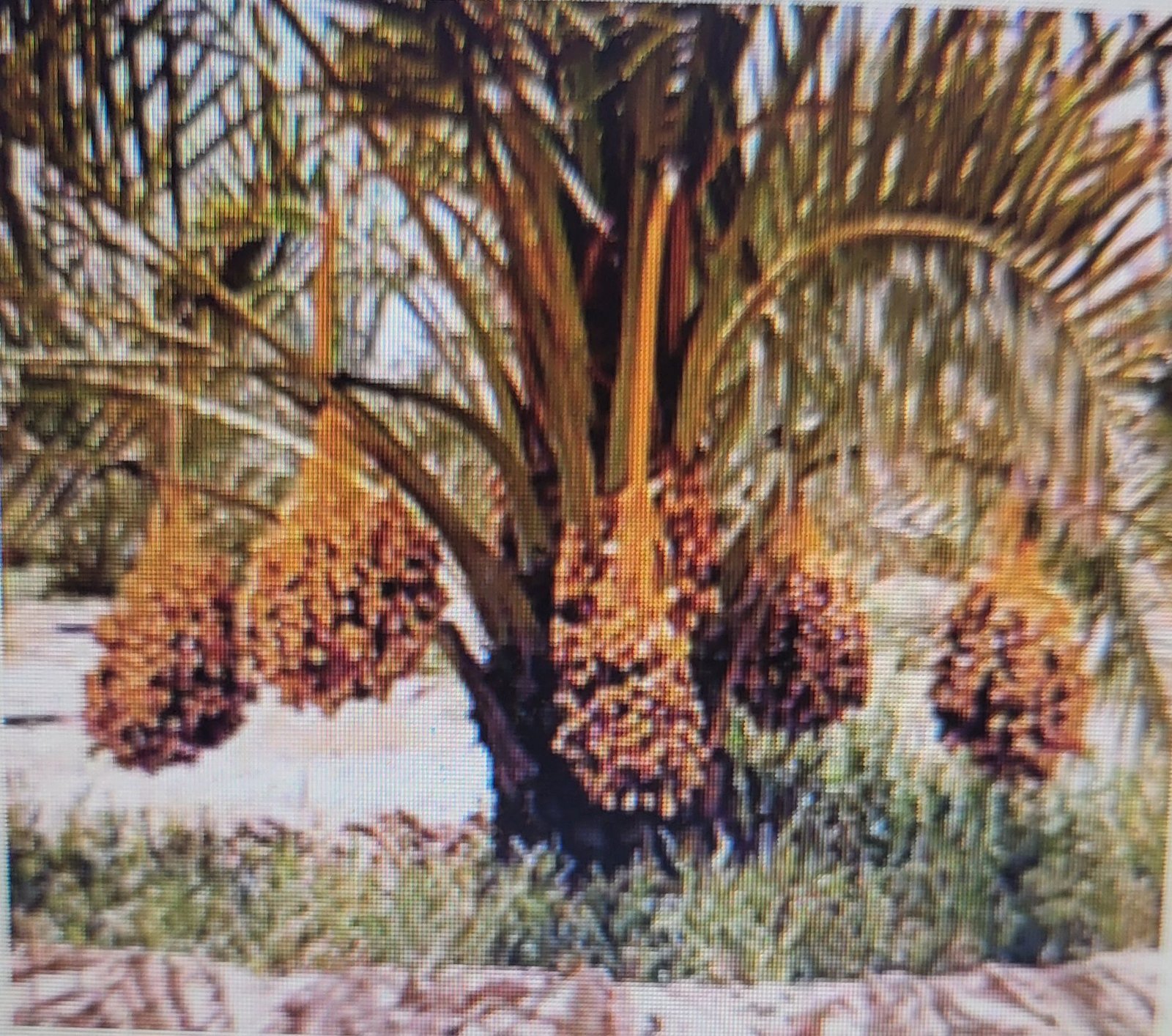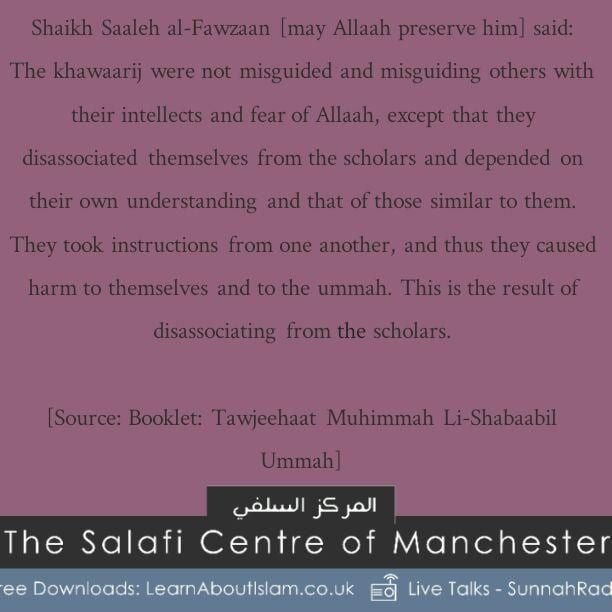In The Name of Allah, The Most Merciful, The Bestower of Mercy.
Self-deception and Self-amazement
Allah [The Exalted] says:
رَبَّنَا لَا تُزِغْ قُلُوبَنَا بَعْدَ إِذْ هَدَيْتَنَا وَهَبْ لَنَا مِن لَّدُنكَ رَحْمَةً ۚ إِنَّكَ أَنتَ الْوَهَّابُ
Our Lord! Let not our hearts deviate (from the truth) after You have guided us, and grant us mercy from You. Truly, You are the Bestower]. [Surah Aal Imraan. Ayah 8]
Al-Allaamah Rabee Bin Haadi Al-Mad’khalee [may Allah preserve him] said:
When you start your journey to gain knowledge – to understand and apply it, this is one of the signs that Allah wants good for you. So, receive glad tidings, have good thoughts about Allah, and be sincere to Allah in your statements, actions, and knowledge. Don’t let yourself be fooled – we seek Allah’s protection from self-deception – and do not feel safe from Allah’s plan. [فَلَا يَأۡمَنُ مَڪۡرَ ٱللَّهِ إِلَّا ٱلۡقَوۡمُ ٱلۡخَـٰسِرُونَ – None feels secure from the Plan of Allah except the people who are the losers]. [ Surah Al-A’raaf. Ayah 99]
A believer always fears that his situation will change. It has been reported from Aa’isha and Anas [may Allah pleased with them] that the Messenger [peace and blessings of Allah be upon him] often (supplicated) [يَا مُقَلِّبَ الْقُلُوبِ ثَبِّتْ قَلْبِى عَلَى دِينِكَ – O turner of the hearts (Allaah)! Keep my heart firm upon your religion]. I [i.e. Aa’isha or Anas] asked, “O Allah’s Messenger! We believe in you and what has been revealed to you, so do you fear for us?” He said, “Yes, indeed the hearts are between two fingers among the fingers of Allah and He turns them how He pleases”. By Allah! This is understanding that a person does not feel safe about himself, for indeed Satan flows through the human being like blood. Therefore, a person should guard his heart, intellect, and deeds ardently more than the (manner in which) he guards his wealth and honour. Whoever is given the ability to look after his own affairs is obligated to guard his heart before everything else. [رَبَّنَا لَا تُزِغْ قُلُوبَنَا بَعْدَ إِذْ هَدَيْتَنَا وَهَبْ لَنَا مِن لَّدُنكَ رَحْمَةً ۚ إِنَّكَ أَنتَ الْوَهَّابُ – Our Lord! Let not our hearts deviate (from the truth) after You have guided us, and grant us mercy from You. Truly, You are the Bestower]. [ Surah Al Imraan. Ayah 8] [1]
Constantly Supplicating to Allah and Not Being Heedless of Our Weak Selves
يَا حَيُّ يَا قَيُّومُ بِرَحْمَتِكَ أَسْتَغيثُ أَصْلِحْ لِي شَأْنِيَ كُلَّهُ وَلاَ تَكِلْنِي إِلَى نَفْسِي طَرْفَةَ عَيْنٍ
O Ever Living! O The Self Subsisting, Upon Whom Everything Depends! By Your mercy I seek assistance; rectify for me all of my affairs and do not leave me to myself, even for the blink of an eye. [2]
Imaam Ibn Al-Qayyim [may Allah have mercy upon him] said: The most perfect (person) is that one who is more perfect in his servitude (to Allah), the greatest in his acknowledgment of his poverty, dependence, and neediness (in the presence of Allah). He never (considers himself) self-sufficient in the presence of his Lord in the twinkling of an eye. And that is why among the supplications of the Prophet is that he is used to say:
أَصْلِحْ ِلي شَأِني كُلَّهُ ، وَلاَ كلْنِي إِلَى َنفْسِي َطرْفَةَ عَيْنٍ وَلاَ إِلَى أَحَدٍ مِنْ خَلْقِكَ
“Rectify for me all of my affairs and neither leave me to myself, even for the blink of an eye, nor to anyone among your creation”.
He used to supplicate saying:
يَا مُقَلِّبَ ٱلْقُلُوبَ ثَبِّتْ قَلْبِي عَلَى دِينِكَ
“O Turner of the hearts! Keep my heart firm upon Your Religion”.
He knew (with absolute certainty) that his heart is in the control of Allah’s [The Mighty and Majestic] Hand and he has no control over it, and that Allah alternates it (alternates it from one state to another based on His perfect justice, knowledge and wisdom) how He pleases. [3]
Imam Muhammad Ibn Saalih Al-Uthaymeen [may Allah have mercy upon him] stated: “Given that the Messenger’s firmness (depends on Allah’s bestowal of it), what about us? We, who are weak in faith and certainty, while exposed to vain desires and falsehoods that are made to resemble the truth. As a result, we are in grave peril and must ask Allah for steadfastness upon truth, and to protect our hearts from straying (due to our manifest and hidden flaws, sins, and wrongdoings)”. [4]
Not Paying Close Attention to Our True Reality
A man [may Allah be pleased with him] among the companions of the Prophet [peace and blessings of Allah be upon him] used to say when he was praised: [اللهم لا تؤاخذني بما يقولون و اغفر لي ما لا يعلمون – O Allah! Do not take me to account for what they say and forgive me for what they do not know (about me)].
Al-Allaamah Zaid Bin Haadee Al-Madkhalee [may Allah have mercy upon him] said: This is one of the invocations, especially when (someone) is praised and he hears it. For instance, when it is said, “So and so is upright and righteous,” and the person hears what was said about them, or they receive such praise, or it is said, “So and so is very truthful, a good person, charitable, knowledgeable, and so on.” If they hear this, a believer becomes afraid for themselves and feel embarrassed that they might be the opposite of what people say about them. Because of this, they reflect on themselves and become active in doing good deeds to become righteous, a doer of good, and deserving of the praise given to them by others. If he does this, he will be successful and blessed. However, if he becomes deceived by what others say and oblivious to his mistakes and shortcomings, shaytaan will afflict him with self-importance. As a result, when a believer hears people praising him for his righteousness, he makes innovation: “O Allah! Do not take me to account for what they say”, meaning, do not hold me to account due to this praise and the good characteristics (stated about me). That is because he fears for himself. The human soul is fragile, so he says, “And forgive me for what they do not know (about me)”. This means that people commend a person based on what people know about him outwardly, so the person fears that he has Mukhaalafaat (deeds that go against the teachings of the Shariah), which are unknown to others. Therefore, he asks his Lord not to hold him accountable and to forgive their sins, shortcomings, and mistakes that are hidden from people. The children of Adam are deficient, but some fall short and then repent and strive to do good again. Others, however, continue to make mistakes and persist in sin until they face punishment. [5]
Umar Bin Abdil Azeez [may Allah have mercy upon him] said to Khaalid bin Safwaan [may Allah have mercy upon him], “Admonish me”. Khaalid said, “O leader of the believers! There are a people who have been deceived by Allah’s concealment of (their sins, faults etc) and good praise (received from people) has put them to trial; therefore, do not let the ignorance of others (about you) overcome what you know about yourself (in reality). May Allah protect us and you from being deceived by Allah’s concealment of (our sins, faults etc), and from being pleased with the praise (received from) people, falling short and being neglectful of that which Allah has obligated to us and inclining towards (vain) desires”. So he (Umar) wept and said, “May Allah protect us and you from following (vain) desires”. [6]
Imaam Sufyaan Ath-Thawree [may Allaah have mercy upon him] said: “Be cautious of what corrupts your deeds, as Riyaa is indeed what corrupts your deeds. If it’s not Riyaa, then it might be your self-amazement that leads you to believe you are more virtuous than your brother. Perhaps you haven’t accomplished the same deeds as him, and he may have more righteous actions and a genuine fear of Allah that keeps him away from doubtful matters. If it’s not self-amazement, then be wary of seeking the praise of others, desiring their recognition for your deeds, and wanting to be seen as noble and esteemed in their hearts. Remembering death frequently is sufficient to reduce your concern for worldly matters and ignite a strong desire for the afterlife. Having prolonged hope for worldly things is enough to diminish fear of Allah and engage in disobedient acts, and the distress and regret on the Day of Judgment are sufficient for those who have knowledge but fail to act upon it”. [7]
Imaam As-Sadi [may Allaah have mercy upon him] said: “How many people know about love of Allah, its rulings, and everything it entails, but their hearts are devoid of it?! How many servants (of Allah) know and testify to Allah’s Qadaa Wal-Qadar and the virtue of relying solely on Him, but when what has been decreed goes against their desires, they become anxious and lose their peace and certainty?! Only those whose hearts truly understand and are aware of Allah can find solace in the fact that Allah is sufficient for them, and they submit to His judgments regardless of the outcome. How many people know the rules and intricacies of trade, but when it comes to actual transactions, they fail to deal beautifully with others?! So, don’t be deceived when you know something that you will be attributed to it. That’s why a person is obligated to ask Allah for beneficial knowledge- knowledge that leads to righteous actions. And Allah knows best”. [8]
Not Paying Enough Attention to Self-rectification Regardless of The Circumstances
Allah’s Messenger [peace and blessings of Allah be upon him] said: “Every deed has a period of enthusiasm, and every period of enthusiasm is followed by a slackening off. If a person’s enthusiasm is for my Sunnah, then he has succeeded, but whoever chooses something else when he slackens off is doomed”. [9] “Every deed has a period of enthusiasm, and every period of enthusiasm is followed by a slackening off. If a person is moderate and avoids extremes, then you may have hope for him, but if fingers are pointed at him, then do not count him as anything”. [10]
Al-Allaamah Al-Mubaarakfooree [may Allah have mercy upon him] said: “Every deed has a period of enthusiasm” means, enthusiasm and energy for doing a thing, whether it is for good or evil”. “And every period of enthusiasm is followed by a slackening off” means, one becomes tired, weak and lethargic”. “If a person is moderate and avoids extremes” means, if he controls his enthusiasm and avoids the extremes of excess and negligence when his enthusiasm wanes”, “then you may have hope for him” means, there is the hope that he will succeed, for he can continue to adhere to something moderate, and the most beloved of deeds to Allaah are those which are done consistently”. [11]
Allah’s Messenger [peace and blessings of Allah be upon him] said, “The most beloved deed to Allah is the most regular and constant even if it were little”. [12]
Caution Regarding Attachment to Personalities of The Era and Not Paying Close Attention to The Salafus Saalih
Abdullah Ibn Mas‘ud [may Allah be pleased with him] stated, “Whoever (desires to follow a path), let him follow the path of one who has passed away because the living is not safe from Fitnah (trial and temptations that will lead them astray). They (i.e. those to follow) are the Companions of Muhammad [peace and blessings of Allah be upon him]. They were the best of this ummah, purest in heart, most profound in knowledge, and plainspoken. Allah chose them to accompany His Prophet and establish His religion, therefore, acknowledge their status and follow in their footsteps and adhere as much as you can to their example in conduct and attitude because they followed true guidance”. [13]
Imaam Ibn Rajab [may Allah have mercy upon him] said: “There is not to be found in the statements of those who came after the Salaf (any) truth, except that it is found in their statements with a more concise wording and a shorter expression. There is not to be found in the statements of those who came after them (any) falsehood, except that there is in their statements that which clarifies its falsity for the one who understands and contemplates [i.e. the one who understands the statements of the Salaf]. There are wonderful meanings found in their statements and precise observations, which those who came after them were neither guided to nor knew about it. The one who does not take knowledge from their statements will miss all that goodness, alongside the numerous (affairs) of falsehood he will fall into due to following those who came after them”. [i.e. those who came after the Salaf]. [14]
A man said to Imaam Maymoon Ibn Mehraan [may Allaah have mercy upon him], “The people will not cease to be upon good as long as Allaah keeps you (alive) for them”. He replied, “The people will not cease to be upon good as long as they fear their Lord”. [15]
Finally, in regards to those of us who have entered our early, mid, and late 50s and mid-60s, our primary concern – as mentioned by Shaikh Abu Khadeejah – is to remain upon Salafiyyah and not to stray at this stage of life. Some wise people stated, “There are three types of days: “Yesterday, today and tomorrow. Yesterday serves as a moral lesson, an admonition, and a lesson for you. Today is like a friend who gives you good advice. It was hidden from you for a long time and will pass by quickly, so make the most of it by doing good. As for Tomorrow, you are uncertain of what Allah has planned. You do not know if you will be among its people or not”. [16]
We ask Allah:
اللَّهُمَّ بِعِلْمِكَ الْغَيْبَ وَقُدْرَتِكَ عَلَى الْخَلْقِ أَحْيِنِي مَا عَلِمْتَ الْحَيَاةَ خَيْراً لِي وَتَوَفَّنِي إِذَا عَلِمْتَ الْوَفَاةَ خَيْراً لِي، اللَّهُمَّ إِنِّي أَسْأَلُكَ خَشْيَتَكَ فِي الْغَيْبِ وَالشَّهَادَةِ، وَأَسْأَلُكَ كَلِمَةَ الْحَقِّ فِي الرِّضَا وَالْغَضَبِ، وَأَسْأَلُكَ الْقَصْدَ فِي الْغِنَى وَالْفَقْرِ، وَأَسْأَلُكَ نَعِيماً لَا يَنْفَذُ، وَأَسْأَلُكَ قُرَّةَ عَيْنٍ لَا تَنْقَطِعُ، وَأَسْأَلُكَ الرِّضِا بَعْدَ الْقَضَاءِ، وَأَسْأَلُكَ بَرْدَ الْعَيْشِ بَعْدَ الْمَوْتِ، وَأَسْأَلُكَ لَذَّةَ النَّظَرِ إِلَى وَجْهِكَ وَالشَّوْقَ إِلَى لِقَائِكَ فِي غَيْرِ ضَرَّاءَ مُضِرَّةٍ وَلَا فِتْنَةٍ مُضِلَّةٍ، اللَّهُمَّ زَيِّنَّا بِزِينَةِ الْإِيمَانِ
وَاجْعَلْنَا هُدَاةً مُهْتَدِينَ
O Allah! By Your Knowledge of the unseen and by Your Power over creation, let me live if life is good for me, and let me die if death is good for me; O Allah! I ask You to grant me (the blessing of having) fear of You in private and public, and I ask You (to make me utter) a statement of truth in times of contentment and anger, and I ask You for moderation when in a state of wealth and poverty, and I ask You for blessings that never ceases, and I ask You for the coolness of my eye that never ends, and I ask You (to make me pleased) after (Your) decree; Aand I ask You for a life of (ease, comfort, tranquillity, etc) after death; I ask You for the delight of looking at Your Face (i.e. in the Hereafter) and yearning to meet You without any harm and misleading trials (coming upon me); O Allah! Adorn us with the adornment of Eemaan, and make us (from those who are) guided and guiding (others). [17]
اللَّهُمَّ أَصْلِحْ لِي دِينِي الَّذِي هُوَ عِصْمَةُ أَمْرِي
وَأَصْلِحْ لِي دُنْيَايَ الَّتِي فِيهَا مَعَاشِي
وَأَصْلِحْ لِي آخِرَتِي الَّتِي فِيهَا مَعَادِي
وَاجْعَلِ الْحَيَاةَ زِيَادَةً لِي فِي كُلِّ خَيْرٍ
وَاجْعَلِ الْمَوْتَ رَاحَةً لِي مِنْ كُلِّ شَرٍّ
O Allah! Rectify my religion for me, which is the safeguard of my affairs; rectify my worldly [affairs], wherein is my livelihood; and rectify my Afterlife to which is my return, and make life for me [as a means of] increase in every good and make death for me as a rest from every evil. [18]
[1] An Excerpt from Marhaban Yaa Taalibal Ilm’ pages 75-76
[2] Silsilah As-Saheehah Number 227
[3] An Excerpt from “Tareeq Al-Hijratayn”. pages 25-26
[4] Sharh Mumti 5/388
[5] Awnul Ahadis Samad Sharh Al-Adab Al-Muf’rad 2/389
[6] Hilyatul Awliyaa 2/485
[7] Hilyatul Awliyaa. 6/391
[8] Majmoo Al-Fawaa’id Waqtinaas Al-Awaabid. Number 14
[9] Saheeh at-Targheeb. 56
[10] Saheeh at-Targheeb, 57.
[11] Tuhfah Al-Ahwadahy 7/126
[12] Saheeh Al-Bukhaari 6464
[13] Jaami Bayaan Al-Ilm Wa Fad’lihi 2/947, no. 1810
[14] Fadl Ilm As-Salaf Alaa Ilm Al-Khalaf. page 61
[15] Siyar A’laam An-Nubulaa. 5/75
[16] Bahjatul Majaalis 3/330.
[17] As-Saheehah Number 1301
[18]Saheeh Muslim. 2720







